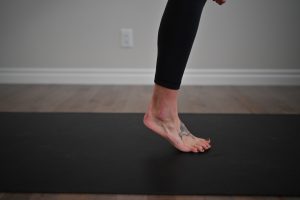Pelvic Floor Physiotherapy
What is pelvic floor physiotherapy?
Pelvic floor physiotherapy, or women’s health physiotherapy which it is sometimes called, is physiotherapy with the focus on the internal pelvic floor muscles and how they relate to the person’s pain. It is called Women’s Health Physio because it is often associated with pregnancy-related conditions, however, this is only one side of the story because men also have pelvic floor muscles which can be related to many male-focused conditions.
Our Masters of Physiotherapy studies teach us the anatomy and physiology of the pelvic floor as well as common conditions such as:
- pelvic girdle pain
- pubic symphysis pain
- overactive or underactive pelvic floor
- prolapse
- urinary incontinence, overactive bladder
It does NOT teach us internal muscle exams, these are taught in a certification once you have completed your physiotherapy degree. Internal exams might bring up questions, but if you imagine how physiotherapists help determine causes of your pain on the outside of your body and muscles, this is also helpful and necessary for the muscles inside the body.
Who might benefit from pelvic floor physiotherapy?
Everyone has a pelvic floor – so no one should be excluded in this list!
- anyone with urinary incontinence (leaking)
- pain with intercourse
- stress management strategies (when we’re stressed we hold much more tension in our pelvic floor muscles)
- athletes
- people diagnosed with conditions like PCOS
- endometriosis
- the list goes on!
Who can treat pelvic floor pain?
You can see your regular physiotherapist and talk with them about what a pelvic floor physio might help you with – I’ve had plenty of these conversations with my patients! Here are some examples where I’ve referred onwards to a pelvic floor physio:
- Finding lots of muscle tightness and guarding around the hips and glutes, pain on palpation (pressure points) near the sit bones and coccyx
- History of incontinence, ongoing back and hip pain
- Stress related back pain but not triggered by mechanical movements (meaning their pain wasn’t reproduced with moving their back in most directions)
Here are a couple pelvic floor physiotherapists in Calgary that are top-notch!
Rumi Krzywicki – Resilience Pelvic Health
You can book in to see Rumi and learn more at her website.
Hilary McDermott – HM Physiotherapy
You can book in to see Hilary through her website.
What should you expect in your session?
Each individual’s session will be slightly different but may incorporate some of these things:
- Biopsychosocial approach – meaning understanding that your pelvic pain may have contributing factors like stress, anxiety, etc.
- Discussions around symptoms related to things like exericse, pregnancy, sexual activity, and more
- Learning about bladder patterns especially in cases like urgency, high frequency, pain
- May include an internal exam of the pelvic floor muscles
- Discussion and demonstration of the pelvic floor muscles to become aware of how to use them, how to relax them and how they may be associated to your symptoms
Staying active in your pregnancy
Hilary and I created a workout program to help mamas stay active through pregnancy. If you are a mama or mama to be looking to stay active you can check out this program here, or you can read more about activity and pregnancy: Post-Partum Exercise Interview with Rachel Friesen (@almostffamous).


